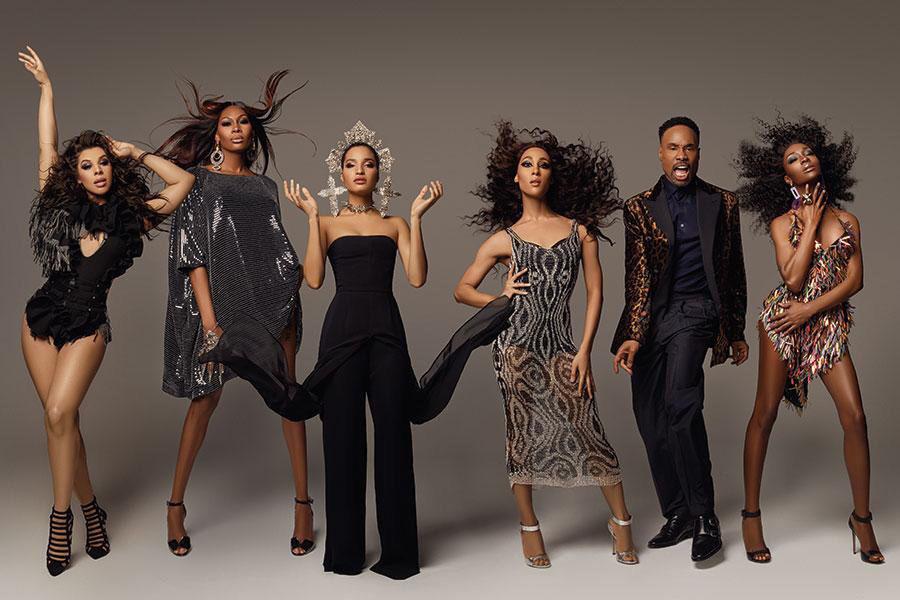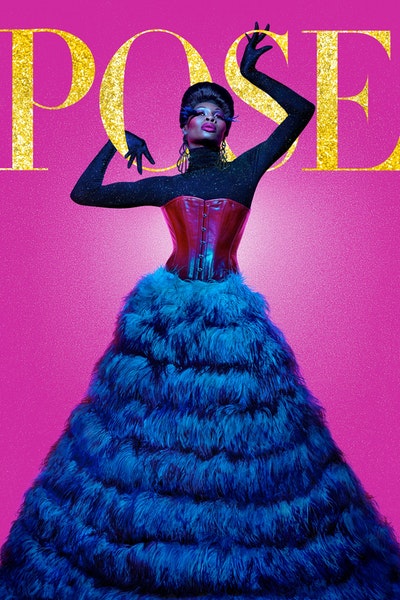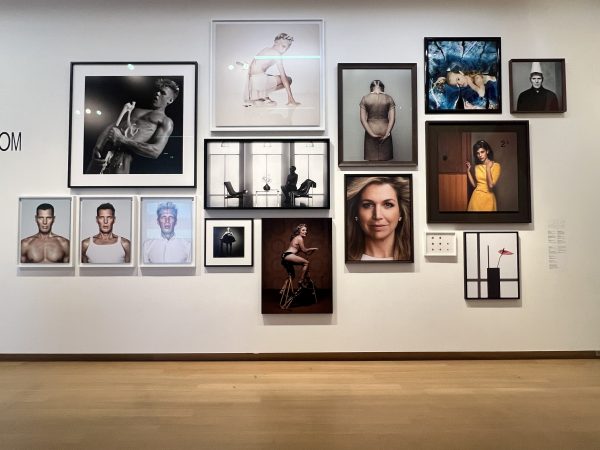
What are you looking at? uh? uh?? I’ll tell you what you are looking at.
You are looking at the largest cast of transgender actors in TV history. That’s what you are looking at.
From left to right (*small spoiler alert*):
Hailie Sahar: Lulu, founder of the House of Ferocity alongside Candy.
Dominique Jackson: Elektra, mother of the former House of Abundance, and also member of Houses of Evangelista and Ferocity, and then later mother of the House of Wintour.
Indya Moore: Angel, a trans woman sex worker, former member of the House of Abundance, later member of the House of Evangelista.
Mj Rodriguez: Bianca, a trans woman with HIV/AIDS and former member of the House of Abundance. She is the founder and mother of the House of Evangelista.
Billy Porter: Pray Tell, MC of the balls in New York, fashion designer, and mentor to members of the community, best buddy with Bianca.
Angelica Ross: Candy, the founder of the House of Ferocity alongside Lulu.
Set in the late ’80s and early ’90s, POSE looks at the lives of a bunch of New Yorkers from various segments of society: the African-American and Latino ball culture world, the downtown social and literary scene, and the underground scene of dominatrices (oh yes, that too, just you wait for season 2). POSE has the ingredients to be one of the best and most inclusive shows ever.
Ballroom culture aka drag ball culture aka house-ballroom community: this is now (thank you Ru!) pretty mainstream, but for those of you who don’t know what that is, it’s a young African-American and Latin American underground LGBTQI+ subculture originated in NY, in which people compete for trophies, prizes, and Glory!
Its own language: yes, ball culture has its own language, for those of you familiar with RuPaul’s Drag Race, you might have already heard the words “share”, “reading”, “kiki”, and more
Queer through and through: it’s not just the cast that’s made of queer actors, but so it’s the majority of its creators, writers, and directors. Janet Mock, who is a writer, director, and producer, is the first trans woman of colour hired as a writer for a TV series in history and Ryan Murphy, also writer, director, and producer donated his profits from Pose to non-profit charitable organizations, such as the Sylvia Rivera Law Project, the Transgender Legal Defense & Education Fund, and the Callen-Lorde Community Health Center.
Voguing: no, Madonna did not come up with that on her own when she launched her 1990 hit song and video Vogue; however she did make that dance form (emerged from the Harlem ballroom scene in the 80s of course) very very very famous.
The drama and the struggle: the pain, the grimness, the homelessness, the fear, the abuse, but also the community, the passion, the love, the hope, the joy, POSE makes you feel it ALL. I am not one for sentimental stuff, but I did have to grab the tissue box at some point through S01E05.
Educational: it’s shocking how in the early 80s, HIV was literally defined as the “gay plague”, POSE does an amazing job at showing how the community was (mis)treated during this time and how early responses to the disease were uneven and underfunded.
Soul: more than anything, POSE has soul; it shows how family comes in many forms, shapes, and sizes, and a House it’s what keeps them together ♥
Pose is a wonderful little thing, watch it on Netflix!
Review by the Guardian here and full trailer at the end of the blog post.
“A house is much more than a home. It's family. And every family needs a mother who is affirming, caring, loyal, and inspiring.”
Pray Tell - POSE, S01E08: Mother of The Year
POSE is fiction. However, several of the houses and characters are based on, or named after, real people. Several people featured in Paris Is Burning – a 1990 documentary by Jennie Livingston – also make cameos in the series. Some examples include Jose Gutierez Xtravaganza, an icon of the voguing scene, who plays a judge throughout the first series, and Sol Pendavis Williams, of the House of Pendavis.
POSE creators and producers used Paris Is Burning to helped inform themselves not only the show, but also on the characters identities. It depicted a strong and powerful picture (albeit through white-people lenses) for the LGBTQI+ community in the 90s in NY. If you want to know more, I recommend watching this video by Matt Baume (19.22).




